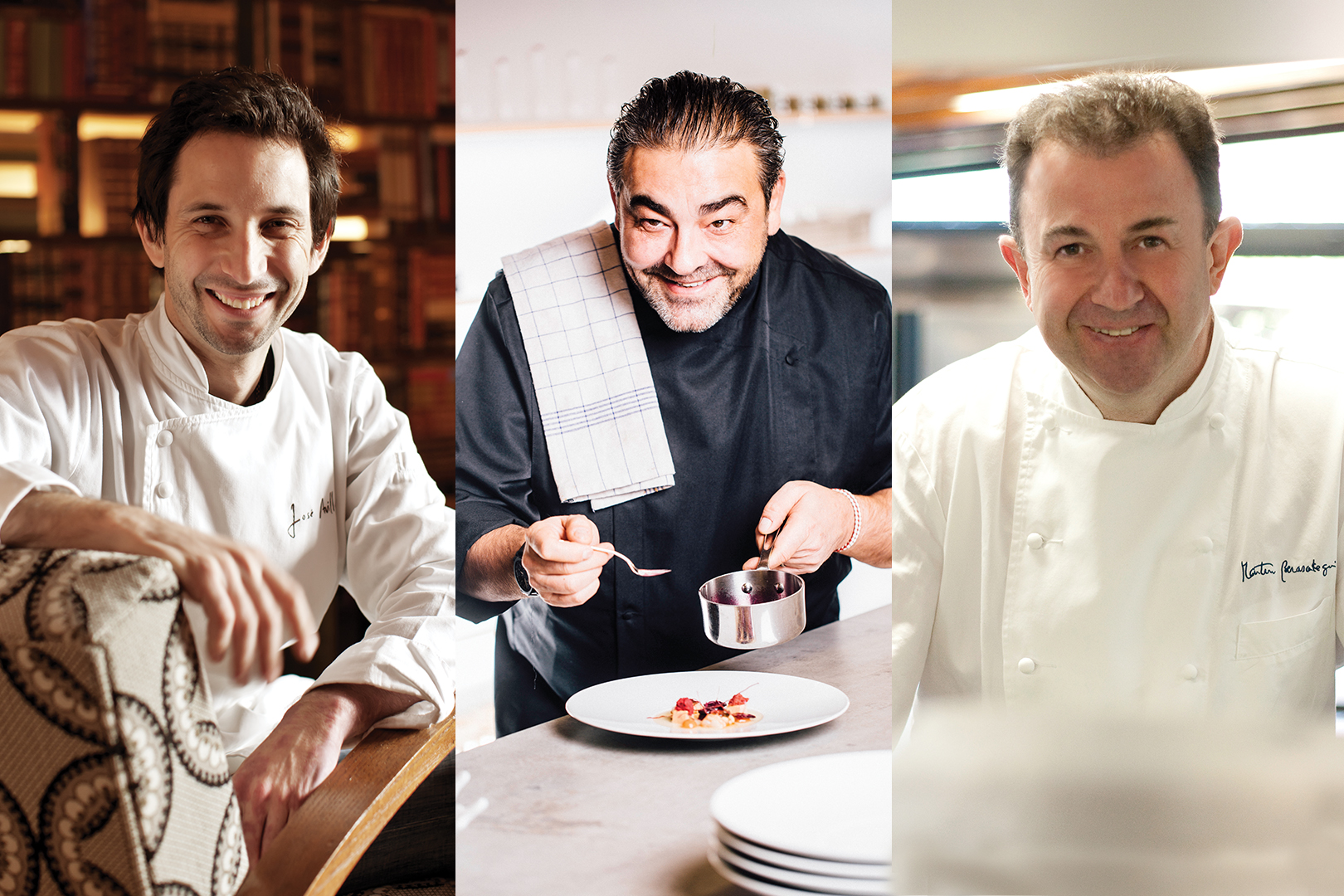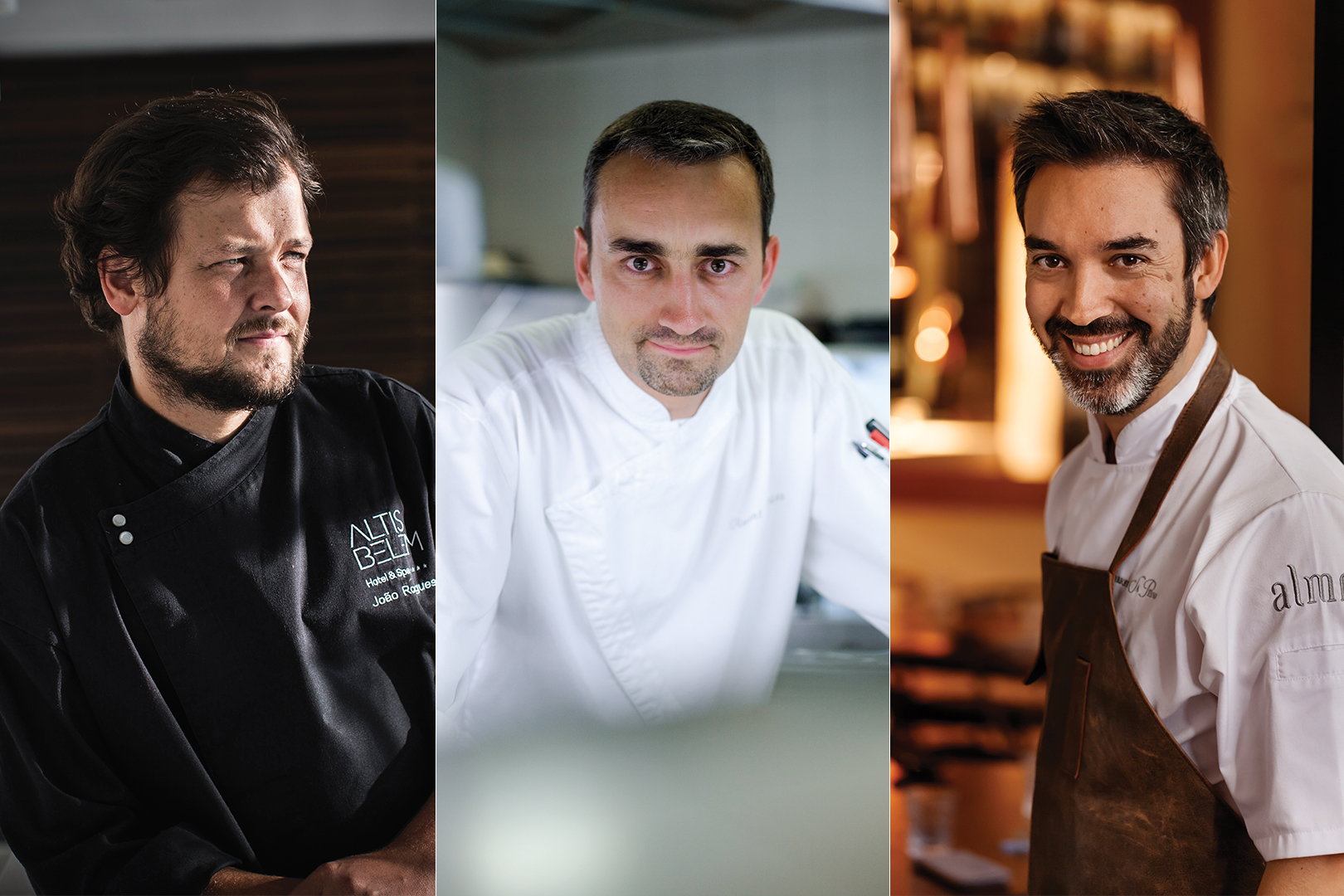The restaurant scene has bolstered the city, and not just thanks to Portuguese hands
Lisbon is in vogue. In the last few years, the international press has been enamoured with the Portuguese capital – “Is Lisbon the coolest capital city in Europe?” wondered CNN Travel in August 2017 –, and the fact it has been the residential destination of choice of superstars such as Madonna and Michael Fassbender has also contributed to putting Lisbon on the world’s radar. Without a doubt, the evolution of Portuguese cuisine and the incessant work of our chefs and cooks have been fundamental pieces to attract even more attention to the city, whether from a consumption perspective, or from an investment one.
Statistically speaking, according to a report from the National Institute of Statistics, restaurants and accommodation created on average 120 new jobs per day last year alone, a 15.8% increase on the previous year. In total, the food service industry – HORECA – was responsible for creating the most new jobs (21.9%), with 44,000 new positions, 35,000 of which were in the restaurant sector. Details of its distribution by regions isn’t available, but information on previous, present and future restaurant openings in Greater Lisbon speaks for itself and leaves no doubt that the restaurant sector in Lisbon had a significant impact on this statistic.
THE MICHELIN-STAR BOOM
Up until five years ago, the majority of the country’s Michelin stars were concentrated in the Algarve and had mostly foreign blood, with culinary heavy- weights like Dieter Koschina at Vila Joya (two stars), Hans Neuner at Ocean (two stars) and William Wurger at Willie’s (one star) keeping their starred restaurants, year after year. Greater Lisbon already had some recognition, at Fortaleza do Guincho in Cascais, for example, at the time with consultant French chef Antoine Westermann and executive chef, fellow Frenchman Vincent Farges, or at Eleven, in the hands of German chef Joachim Koerper.
But the Michelin Guide for Portugal and Spain 2017, presented as always at the end of 2016, brought great news for the country. The number of stars went from 17 (in 14 restaurants) to 26 (in 21 restaurants), with some Portuguese chefs earning their rightful place in the Michelin hall of fame. In Lisbon, receiving the distinction for the first time was Loco, from chef Alexandre Silva; Alma, from chef Henrique Sá Pessoa; and Lab by Sergi Arola in Sintra, from Catalanchef Sergi Arola, whose resident chef is Portuguese native Vlademir Veiga. Keeping their stars were Eleven (Koerper); Feitoria, with Portuguese chef João Rodrigues; Fortaleza do Guincho, now in the hands of Miguel Rocha Vieira; and Belcanto, the two-Michelin-star restaurant of chef José Avillez – the highest distinction obtained by a Portuguese chef on national soil.
As a side-note, in November 2017, at the presentation of the 2018 edition of the red book most feared by chefs, another two stars shone in Portugal’s Michelin sky, both in the Algarve. One at Vista, from chef João Vieira, and the other at Gusto, from German chef Heinz Beck (headed by chef Daniele Pirillo).
Fortunately, the entrepreneurial spirit of both Portuguese and foreign chefs, and Portuguese and foreign investors, has still been thriving in recent months. And everything suggests it will stay that way.

José Avillez, aged 38, is an unavoidable name in Portuguese gastronomy, recently awarded the Grand Prix de L’Art de La Cuisine by the Académie Internationale de la Gastronomie. Born in Cascais, just outside Lisbon, he worked at el Bulli, the restaurant he often says changed his vision of work. He plunged into haute cuisine at the historical Lisbon restaurant Tavares (where he won a Michelin star) and in 2011, with Cantinho do Avillez, he kicked off what has now become a restaurant empire, almost entirely concentrated in the Chiado neighbourhood in the heart of Lisbon.
Today, it includes 14 restaurants (13 of which are in Lisbon and 1 in Porto) with all types of cuisine, from the most traditional Portuguese to the tasting menus founded on national flavours, and a team of around 500 employees. He has already announced that the number will grow in 2018. On the way, he has joined forces with foreign chefs, such as the Peruvian Diego Muñoz, with whom he opened a restaurant in Chiado, Cantina Peruana, and the Mexican Roberto Ruiz (with a Michelin star in the Madrid establishment Punto MX), in a partnership called Barra Cascabel. The space, in line with the Mexican chef’s Salón Cascabel in Madrid, is a restaurant with the flavours of Mexico in the recently inaugurated Gourmet Experience at El Corte Inglés Lisboa, a food hall with seven excellent restaurants, some patisseries and snack corners, and a very good gourmet shop.
Also with a restaurant at El Corte Inglés, Henrique Sá Pessoa, 41, is another chef who has contributed to putting Lisbon on the map and attracts more and more people to his restaurants. Backed by the Multifood restaurant group, one of the largest in Lisbon with dozens of restaurants – among them prominent names such as Pesca, of chef Diogo Noronha, the Zero Zero pizzerias and the meat restaurant Sala de Corte –, he was distinguished by the Michelin guide in 2017. That same year he opened Tapisco, which marries Spanish tapas and Portuguese petiscos in the vibrant neighbourhood of Príncipe Real, a concept soon to be expanded to Porto.
João Rodrigues, of Feitoria, is another name that has drawn the attention of Europe and the world to Portuguese gastronomy. He is at the helm of the kitchens of the Altis hotel group, has a Michelin star under his belt – every year he is touted as the favourite to receive a second – and in the last few months he has been inviting foreign chefs to join him on a tour of some of his national suppliers in programmes that culminate in four-handed meals – the programme is called Matéria.
It is this new, bold blood that has caught the eye (and whetted the palate) of the foreign press, but also of all those who visit Lisbon. Now, restaurants are always full and the neighbourhoods are revived thanks to constant openings – such is the case of Chiado, Príncipe Real and Cais do Sodré.
At the same time, chefs who have made their careers abroad are slowly coming back to Lisbon, with projects that already promise a new wave of openings in the city. Examples of that are Prado in the Sé area, by 28-year-old chef António Galapito, who made his name in London with the renowned Nuno Mendes (one Michelin star in the now extinct Viajante); Local, the micro-restaurant which chef André Lança Cordeiro, who cut his teeth in France, opened in Príncipe Real but which has since passed over to other hands so he can open new projects in Lisbon; Quorum, of Portuguese chef Rui Silvestre, who left the Michelin-starred Bon Bon in the Algarve to open a space that’s very focused on produce in Chiado; and even the (still nameless) restaurant of Vincent Farges who, after leaving Fortaleza do Guincho, travelled to the Caribbean and returned to open a space on Largo da Academia Nacional de Belas Artes, again in Chiado.

Chefs João Rodrigues (Left), Vincent Farges (Centre) and Henrique Sa Pessoa (Right)
FOREIGNERS SETTING THEIR SIGHTS ON LISBON
The wave of openings, and the subsequent increase in the number of job positions, isn’t just down to Portuguese blood. There is a growing number of foreigners wanting to make a name in Lisbon, in both more conventional businesses in the restaurant field – such as the French bakery L’Anisette in São Bento; Fiammetta, the Italian deli in Campo de Ourique founded by a Roman; and Dear Breakfast, a space dedicated to its namesake and conceived by a Frenchman –, as well as in more serious projects.
Jamie Oliver debuted in the Portuguese capital in late January, with a large establishment in the sought-after neighbourhood of Príncipe Real. The Jamie’s Italian franchise opened with three floors, 174 seats and two terraces. It follows the same menu as the British star’s other restaurants of the same brand, launched in 2008, and its popularity has gone through the roof.
In February 2017, word spread that the Basque chef Martín Berasategui was coming to Lisbon; and that journey has been confirmed. The chef has eight Michelin stars on his résumé – three in Lasarte (Barcelona) and Restaurante Martín Berasategui, his parent restaurant in Lasarte-Oria, and two stars at MB in Tenerife – and more than 10 restaurants in Spain. Now he’s opening a restaurant at Myriad by Sana Hotel, at Parque das Nações, at the top of Torre Vasco da Gama, Lisbon’s highest building. It will be called 50 seconds, the time it takes to reach the top by elevator, and it should open this year.
Also anticipated soon is the arrival of Juan Amador, the German chef of Spanish descent with three Michelin stars at Amador in Manheim, Germany.
Other international names, but with restaurants open for longer in Greater Lisbon, seem to want to stay put. Such is the case of Eleven’s Joachim Koerper, or Sergi Arola, who has had Arola at the Penha Longa Resort since 2008 (two years ago, he added his signature restaurant LAB by Sergi Arola). And that’s not even mentioning the various projects focusing on lighter cuisine, among cafés, bakeries and restaurants, with the signature of international names.
The winds have been favourable for restaurants in Lisbon, one of the key arguments of a hypothetical answer to CNN’s questions. Yes, Lisbon is cool. But that’s also because its restaurants just keep getting better and better.








